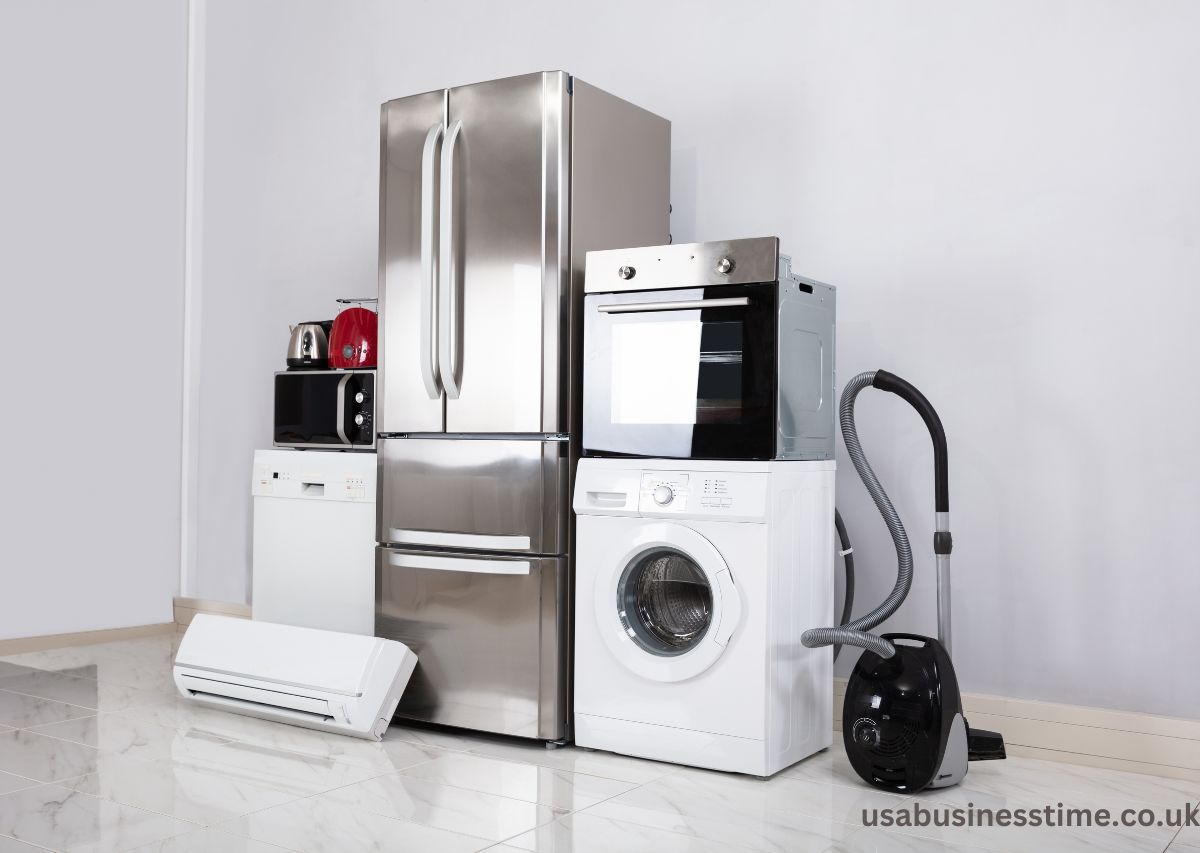Introduction to Budget Appliances
Welcome to Budget Appliances 101: Tips and Tricks for Smart Shopping! We all know purchasing new appliances can be daunting, especially when working with a tight budget. But fear not, savvy shopper! This comprehensive guide will provide valuable insights and strategies to help you navigate the world of budget-friendly appliances like a pro.
Setting a realistic budget is crucial, whether moving into a new home or upgrading your old appliances. By understanding how much you can afford to spend upfront and considering long-term costs such as energy efficiency, maintenance, and repairs, you can make informed decisions that align with your financial goals.
But it doesn’t stop there. We’ll also dive deep into researching prices, deciphering energy efficiency ratings (because who wants high utility bills?), choosing features that suit your needs (no more paying for unnecessary bells and whistles!), and hunting down unbeatable deals and discounts.
Plus, if brand-new isn’t in the cards for you right now, we have tips on buying used appliances without sacrificing quality or breaking the bank. And let’s not forget about maintenance – we’ll share some tried-and-true practices to ensure your hard-earned investments stand the test of time.
Setting a Budget for Your Appliance Purchase
First, consider your needs and priorities. Consider the specific appliances you need to replace or add to your home. Are they essential items like a refrigerator or stove? Or are they more luxury items like an espresso machine or dishwasher? Understanding what is necessary and what is nice will help you allocate funds accordingly.
Next, research average prices for the appliances on your list. Look at different brands and models to understand the price range within which you can find quality products. Remember to factor in additional costs such as installation fees, delivery charges, and any extended warranties you may want.
Remember that setting a budget doesn’t mean compromising on quality. It means being realistic about what features and specifications are important to you without breaking the bank. Consider whether certain bells and whistles are worth paying extra for if they are only used occasionally or make a significant difference in performance.
Be open-minded when it comes to timing your purchase. Keep an eye out for sales events throughout the year when retailers offer discounts on appliances – these can be great opportunities for saving money while still getting top-quality products.
Researching and Comparing Prices
Researching and comparing prices is an essential step when shopping for budget appliances. With so many options in the market, it’s important to do your due diligence to ensure you’re getting the best value for your money.
Start by identifying the specific appliance you need and set a realistic budget. Once you have a clear idea of what you’re looking for, start researching different brands and models.
Visit multiple retailers, both online and offline, to compare prices. Take note of any ongoing sales or promotions that offer significant savings. It’s also worth checking out customer reviews and ratings to get an idea of the reliability and performance of each product.
Consider additional expenses such as delivery fees or installation costs when comparing prices. Sometimes, a slightly higher upfront cost can be justified if it includes these services.
Visit physical stores to see the appliances in person before deciding. This will give you a better sense of their size, quality, and overall appearance.
By taking the time to research and compare prices, you’ll be able to make an informed decision that fits within your budget without compromising on quality or functionality.
Shopping for Deals and Discounts
When finding budget appliances, shopping for deals and discounts is a great strategy to save extra cash. You can snag some amazing bargains on high-quality appliances with research and patience. Here are some tips to help you get the best deals:
1. Check out clearance sales: Many stores offer clearance sales on older models or discontinued items. These appliances are often brand new but at significantly reduced prices.
2. Look for seasonal promotions: Look for special promotions during holidays or specific seasons when retailers offer discounts or bundle deals.
3. Consider open-box items: Open-box items are products that have been returned but are still in excellent condition. They typically come with a discounted price tag and sometimes even carry the original warranty.
4. Remember online marketplaces: Online platforms like Craigslist, Facebook Marketplace, or eBay can be treasure troves of affordable appliances sold by individuals who no longer need them.
5. Sign up for newsletters and loyalty programs: Retailers often provide exclusive discount codes or coupons to their loyal customers through email newsletters or membership programs.
Maintenance Tips to Extend the Lifespan of Your Appliances
Taking care of your appliances is essential if you want them to last years. Simple maintenance tips can help extend their lifespan and avoid costly repairs or replacements.
1. Clean regularly: Keeping your appliances clean from dirt, dust, and debris is important. Wipe down surfaces with a damp cloth and use mild cleaning agents when necessary. Remember to clean filters, coils, and vents as well.
2. Check for leaks: Leaky hoses or pipes can cause water damage and lead to appliance malfunctions. Regularly inspect the connections and seals on your washing machine, dishwasher, refrigerator, and other water-using appliances.
3. Avoid overloading: Overloading your appliances stresses their components and reduces efficiency. Follow the manufacturer’s guidelines for load capacity to prevent unnecessary wear and tear.
4. Schedule professional maintenance: Consider scheduling regular check-ups with a qualified technician who can identify any potential issues before they become major problems.
5. Use proper settings: Adjusting settings according to specific needs can help reduce energy consumption while optimizing performance. For example, using lower heat settings on your dryer or dishwasher can save energy without compromising results.
6. Keep an eye on temperature levels: Refrigerators should maintain temperatures between 37-40 degrees Fahrenheit (3-4 degrees Celsius), while freezers should be set at 0 degrees Fahrenheit (-18 degrees Celsius). Checking these levels periodically ensures food safety while preventing excessive strain on the appliance.
Following these simple maintenance tips consistently throughout the year helps keep your budget-friendly appliances running smoothly for longer! Remember that prevention is key when extending your appliances’ lifespan, so don’t neglect their care and upkeep.
Conclusion
You ought to feel more at ease making a purchase after taking into account all of the advice on making wise decisions while buying inexpensive equipment. You can find appliances that fit your needs and your wallet by setting a budget, researching prices, understanding energy efficiency ratings, choosing the right features, and shopping for deals and discounts.
Consider buying used appliances, as they can often be a great way to save money without compromising quality. Thoroughly inspect them before purchasing and ask about any warranties or guarantees.
Once you have purchased your appliance, it is important to maintain it properly to extend its lifespan. Regularly cleaning them inside and out will keep them looking their best and help prevent issues from arising. Additionally, following the manufacturer’s specific maintenance guidelines will ensure optimal performance.
FAQS
1: Are budget appliances of lower quality than more expensive ones?
A: Not necessarily. While it’s true that some budget appliances may not have the same high-end features as their pricier counterparts, many affordable options offer excellent performance and durability. Researching and reading reviews is important to find reliable brands and models within your budget.
2: How can I determine if a used appliance is in good condition?
A: When buying used appliances, there are a few steps you can take to assess their condition. First, ask the seller about the appliance’s history, including how old it is and any known issues or repairs. Inspect the appliance thoroughly for signs of damage or wear. Test its functionality before purchasing, or consider buying from a reputable seller that offers warranties or return policies.
3: Can I save money on energy costs with budget appliances?
A: Absolutely! Many budget-friendly appliances now come with energy-efficient features such as Energy Star ratings. These appliances use less electricity or water without compromising performance, helping you reduce your utility bills over time.
4: What maintenance tips should I follow to prolong the lifespan of my appliances?
A: Regular cleaning and proper usage are key factors in extending the lifespan of your appliances. Clean filters regularly, remove lint from dryer vents, defrost freezers when necessary, and avoid overloading washing machines or dishwashers. Additionally, schedule regular professional maintenance checks for complex systems like HVAC units.
5: Where can I find deals and discounts on budget appliances?
A: Look out for sales events at local stores and online retailers offering discounted prices on select models throughout the year. Consider signing up for newsletters or following the social media accounts of appliance brands for exclusive deals directly from manufacturers.










